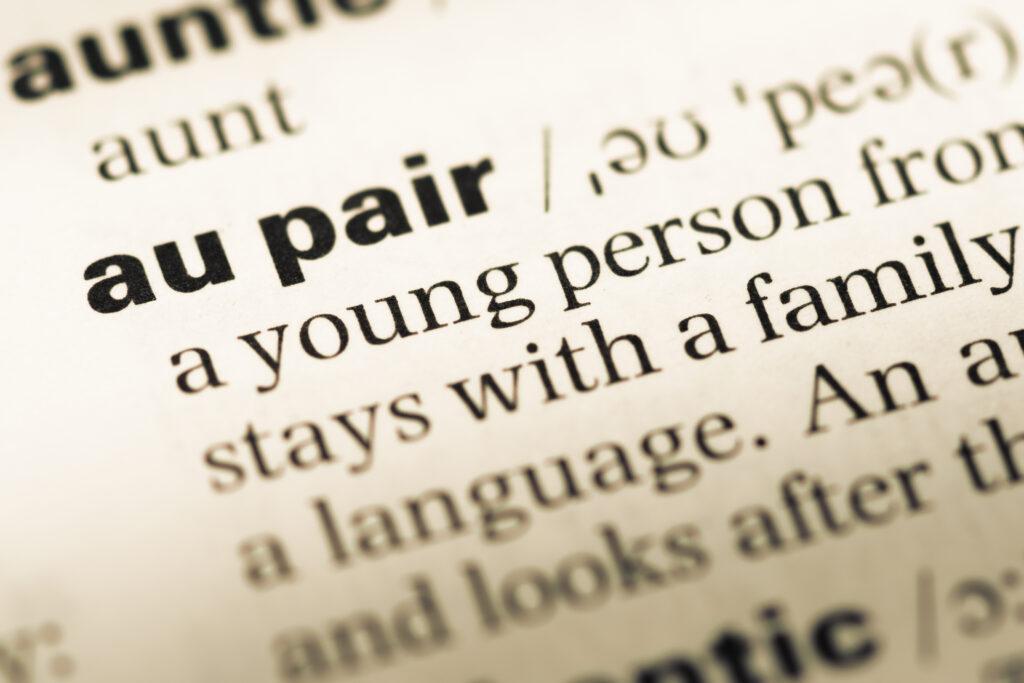
Heard of an Au pair but don’t know what that is? Check out this post to learn more about what is an Au pair, its origin, and the history.
As someone who is in the process of being an Au pair, I thought it would be interesting to create a post that highlights the true meaning of what an Au pair is as well as its origin and history.
Because let’s be real..
There are a lot of people out there who truly have a warped definition of what an Au pair is.
In fact, if you were to go on r/Aupairs on Reddit, you would actually understand exactly what I’m talking about. But, for those of you who don’t know, I’ve seen many people describe an Au pair as a nanny, a babysitter, a housekeeper, and even a maid.
So, I thought it would be interesting to set the record straight.
Therefore, if you’re thinking about becoming an Au pair but don’t know what the position is truly, you’ve come to the right place! This post alone highlights the definition of what an Au pair is as well as its origin and history.
Au Pair in Germany Series
P.S. This is a post in my Au Pair in Germany series. Here is the complete series:
Au Pair Origin and History: What is an Au Pair: The Origin and History
Au Pair Tasks: What Does an Au Pair Do: Au Pair Tasks
Au Pair Agencies: The 7 Best Au Pair Agencies for Americans
German Language Learning Apps: The 10 Best Apps for German Learning as an Au Pair
Au Pair Guide: How to Become an Au Pair in Germany
Au Pair Visa: Au Pair Visa Germany: Requirements for Americans
Au Pair vs. Nanny: Au Pair vs. Nanny: What is the Difference?
Au Pair Salary: German Au Pair Salary: What to Expect
Au Pair Rematch: The Top 10 Reasons Why Au Pairs Rematch
Au Pair Driving: The Au Pair Guide to Driving in Germany
German A1 Exam: How To Pass Your German A1 Test To Become An Au Pair
Host Family Interview: Here Are 100 Host Family Interview Questions You Need To Ask
Host Family Red Flags: 10 Host Family Red Flags You Should Watch Out For
Packing List: Au Pair Packing List: Germany Edition
BFD: BFD in Germany: What Americans Need To Know
FSJ: How to Do an FSJ in Germany
Ausbildung: Ausbildung in Germany: Here’s Everything You Need to Know
The Definition (what is an au pair)
So, what is an Au pair…
an Au pair by definition…
Au pair /ˌō ˈper/
– is a young foreign person on a visa who provides childcare to a host family for a defined period of time in exchange for room and board, a stipend, light housework, and a cultural experience.
So, from that definition alone, one can conclude that an Au pair is not a nanny since nannies are paid hourly or with salaries. An Au-pair also isn’t necessarily a babysitter since babysitters provide short-term or casual childcare without the need for a culture exchange.
In addition, one can conclude that Au pairs are not housekeepers since they don’t clean people’s houses for a living. The light housework an Au pair does is only connected to the children and not the entire house.
Lastly, from this definition, one can also conclude that an Au pair is most certainly not a maid. Maids are considered to be servants in another person’s household who do domestic duties exclusively for the family. Therefore, if an Au pair were to be a maid, there would be no need for them to provide childcare.
So, if you didn’t know what an Au pair is, before reading this, you do now. In fact, as I go into the origin behind the word “Au pair” you’ll see why this definition still stands today.
Origin (what is an au pair)
The origin behind the word “Au pair” comes from French and it means “at par” or “equal to” in English. In fact, the word was originally an adjective before it became a noun since it describes an arrangement between two parties that is paid for by the exchange of mutual services.
So, in other words, when it comes to being an “Au pair” the relationship one should have with their host family should be a relationship that is intended to be one of equals. Meaning, an Au pair should be treated as a member of the host family instead of as a servant.
The origin alone, as a result, sets the job title apart from other traditional domestic workers such as a housekeeper or a maid.
In fact, diving deeper into the history behind the word “Au pair” explains why the term came into fruition.
History (what is an au pair)
The history behind the word “Au pair” started after World War II in Europe. Prior to the war, domestic servants were available to families who were of middle-class and upper-class status. However, when changes in social attitudes, wages, and taxes occurred after the war, domestic servants became completely inaccessible to middle-class families. In fact, with this social change, middle-class girls became even more interested in other foreign cultures and languages in order to earn a living.
However, since there was a stigma attached to being a domestic servant, the role wasn’t very attractive to a lot of women. In fact, the role was simply a working-class title that even people in the working-class rejected. Therefore, to increase attraction to the role, a non-servant role was created called the “Au-pair”. The Au-pair was hence supposed to be treated like a member of the family and not wear a uniform.
So, as a member of the family, the Au-pair was given an allowance and their own room. The Au pair would also eat with the family from time to time as well as join them on special outings. In addition to that, the family would even provide the Au pair the time to learn the language of the host country so that they can assimilate better to the culture.
In fact, even though Au pairs are mostly female today, many males are becoming Au pairs too, making the Au pair role gender-neutral.
All in all, the history alone therefore explains why the government imposes so many limits on the Au pair role. This is to prevent the Au pair from falling into the “servant” role again so that they can feel equal and at par with the family.
Benefits (what is an au pair)
Today, the benefits to being an Au pair are what make the role so attractive to so many people around the world. These benefits include but are not limited to:
- Living abroad for cheap for a year
Many people who become Au pairs appreciate the fact that they can live in another foreign country for free. They don’t have to waste a lot of money on accommodation and they can explore the country on their free time.
- Being a part of a local family
Many people who become Au pairs may not know anyone in their host country. Being a part of a local family makes them feel less alone after moving to a foreign country.
- Learning a new language
Many people who become Au pairs have a passion for learning foreign languages. Being an Au pair gives them the opportunity to learn the host country’s language so that they can assimilate well to the culture.
- Making international friends abroad
Many people who become Au pairs make so many international friends abroad. They will sometimes go on trips with their international friends or hang out with them in the host country.
- Becoming independent and adaptable
Many people who become Au pairs become very independent and adaptable after the experience. They are able to move to different foreign countries on their own and adapt to different cultures.
- Having an international experience on your CV/Resume
Many people who become Au pairs also have the option to add their Au pair experience to their CV/Resume. Doing this will make one stand out to several employers and it can open doors for other childcare roles.
So, if you’re thinking about becoming an Au pair for the first time ever, don’t hesitate. This cultural exchange can be the experience of a lifetime.
What is An Au Pair FAQs
Here are some frequently asked questions you might have about what an Au pair is.
How old is the average Au pair?
The average age of an Au pair is usually between 18-30 years old.
How long do Au pairs stay?
A typical Au pair stay can last from 3 months to an entire year with the possibility of an extension in some countries.
Do Au pairs always live with the family?
No, sometimes an Au pair can live in a live-out apartment provided by the host family.
What are the disadvantages of being an Au pair?
Here are some disadvantages to being an Au pair:
- Working with your host children might be challenging at first since they don’t know you
- You may experience culture shock due to living with a host family outside of your country of origin
- It’s hard to have an appropriate work/life balance if you live inside the family’s home
- Since you’re on the family’s schedule, traveling every weekend is not always guaranteed.
Overall, I really hope you enjoyed reading What is an Au Pair: The Origin and History! Please let me know in the comments down below what surprised you the most. I would love to hear from you. 🙂
Love this post? Pin it for later!

Follow me on Instagram!











Leave a Reply